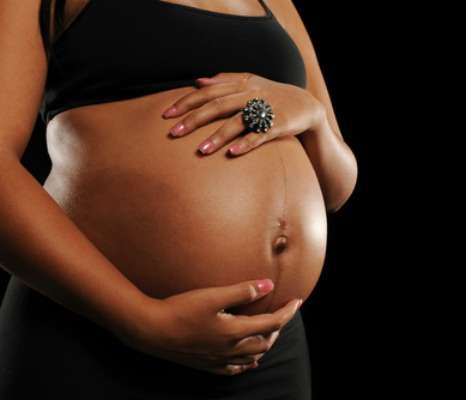‘41,000 Nigerian children are infected with HIV every year,’ Wellbeing Foundation founder says

Founder-President of the Wellbeing Foundation Africa, Mrs Toyin Saraki has said that Nigeria is in the midst of a national health crisis.
Mrs Saraki, who is the Chair of Nigeria's Primary Healthcare Revitalization Support Group, however added that the solution to the crisis is within the nation’s grasp.
She made the comments in an opinion editorial for Reuters titled “Primary healthcare and education are where impact can be felt in Africa.”
Read the full article below:
This week saw the 28th African Union Summit take place in Addis Ababa, Ethiopia. Along with the diplomatic challenges facing the continent, the delegates also discussed the fate of health and education in Africa, not least how to boost service provision at the primary care level.
Over twenty-five years since the landmark 1978 Alma Ata Declaration asserted the critical importance of primary healthcare, many countries still lag well behind the standards needed to give every citizen even basic health protection.
Nigeria is a case in point. The country is in the midst of a national health crisis; one-third of children under the age of five are stunted due to poor nutrition; and more than 41,000 children become newly infected by HIV every year.
Yet the solution – unlike with so many development challenges – is within our grasp. Technology, has increased access to vulnerable communities and, crucially, new pioneering funding mechanisms mean that key areas of primary healthcare, from midwifery to general practice, could be rapidly improved.
The Nigerian National Health Act Basic Healthcare Provision Fund was developed in 2014 and was designed to improve Nigeria’s poor primary healthcare. But three years on, the Act remains only partially implemented. Primary healthcare, the cornerstone of a healthy population, has been left by the wayside. It must be prioritized.
Take reproductive, maternal, newborn, child and adolescent health and nutrition, a key facet of primary care. Nigeria’s new healthcare narrative includes the revival of the Midwives Service Scheme previously established in 2011, the creation of a national health management information system and a strengthened focus on maternal and newborn health.
The aim is to provide an easily accessible route to care, producing quick and visible impact that will altogether affect the lives of every Nigerian, especially the most vulnerable. This would be a revolutionary set of initiatives but they are yet to be funded, and yet to be delivered.
CHRONIC UNDERFUNDING
Overall, gains in PHC and efforts to implement long-overdue universal health coverage in Nigeria have been thwarted by chronic underfunding. The Abuja Declaration of 2001 saw members of the African Union pledge to spend at least 15% of the national budget on healthcare. Yet, Nigeria currently allocates a mere third of that pledged amount to public health services.
As chair of the Nigeria's Primary Healthcare Revitalization Support Group, I believe that primary healthcare investment, both from the private and public sector, is key to ensuring universal healthcare for all Nigerians.
From a social investment perspective it is also a huge opportunity to see a social return on money invested. The nature of primary healthcare – the ability to monitor and manage delivery of, for example, the Wellbeing Foundation Africa's Mamacare antenatal and postnatal health access through birth preparedness classes, or by the USAID-funded MPowering Healthworkers Program which engaged mobile-technologies in training midwives in Ondo State of Nigeria– means that money invested in, can be quantified by results gained.
For innovative social impact investors, there is an opportunity here for collaboration between both the central and state level governments in Nigeria to fund real change.
In Mali, Nigeria’s West African neighbour, the Novartis Foundation implemented an initiative aimed at improving access to PHC, specifically for children and women in one region. The project targeted 200,000 inhabitants from rural areas and was funded by both regional and district partners.
The results were remarkable: between 2008 and 2010 the community health associations increased their average score by 10%, improving particularly in the areas of internal governance and support to healthcare personnel. During the same period the utilisation rates for prenatal consultations increased more than 30%.
Read more at http://pulse.ng/health/toyin-saraki-41-000-nigerian-children-are-infecte...












